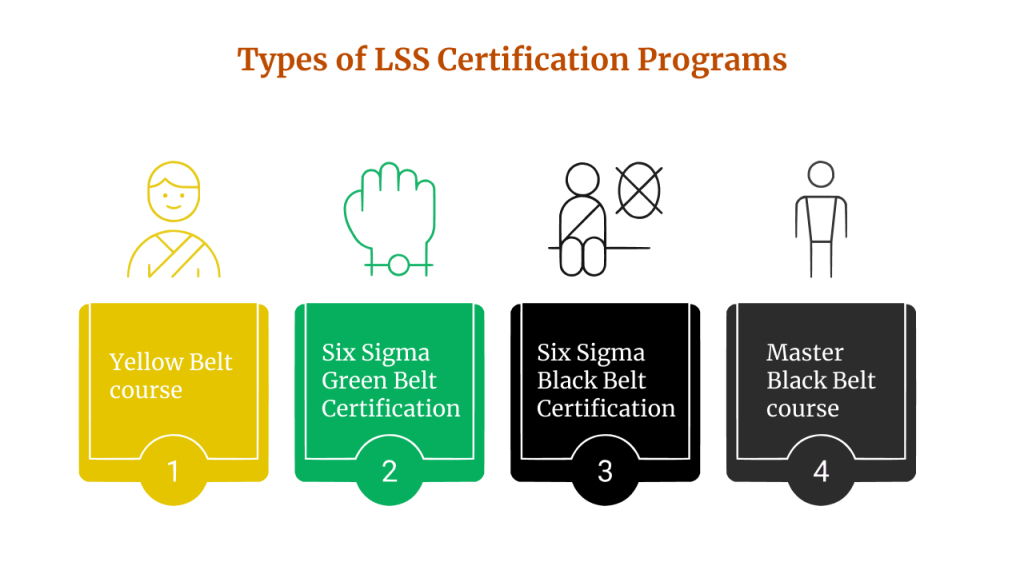
Introduction
The world of business is always looking for ways to improve. Efficiency, cost reduction, and waste elimination are top priorities. Lean Six Sigma (LSS) has emerged as a powerful tool to achieve these goals. It combines two methodologies: Lean, which focuses on eliminating waste, and Six Sigma, which focuses on reducing defects.
But what about India? Is there a demand for LSS professionals in this rapidly developing nation? Let us dig deeper.
Why the Surge in Demand?
The demand for Lean Six Sigma professionals in India is on the rise. Different industries like IT, manufacturing, healthcare, and education are recognizing the advantages of LSS and looking for certified experts.
Take manufacturing, for example. Lean Six Sigma principles help identify stoppages, reduce defects, and improve production efficiency. In the IT sector, these professionals play an important role in optimising software development processes. This leads to faster delivery and higher-quality products.
Reasons for the Rising Demand
Several factors are driving this increased demand:
Increased competition: The Indian market is becoming increasingly competitive. Companies are looking for ways to improve their efficiency and reduce costs. Lean Six Sigma provides a proven framework for achieving this.
Growing awareness: Awareness of LSS is spreading rapidly in India. Organisations are realising its potential for improving process quality, productivity, and customer satisfaction.
Government initiatives: The Indian government has also recognised the importance of LSS. They are promoting its adoption through various initiatives.
Focus on quality management: Indian companies are increasingly focusing on quality to compete globally. LSS provides the tools and methodologies required to achieve world-class quality standards.
Increased salaries: Lean Six Sigma certifications can lead to higher salaries and better career opportunities. This is further motivating professionals to pursue Lean Six Sigma Training.
Types of LSS Certification programs
There are different levels of LSS certifications, each with its own focus and requirements:

Yellow Belt course: This is a basic level certification that provides an overview of LSS concepts.
Six Sigma Green Belt Certification: This intermediate-level certification allows individuals to lead and participate in LSS projects.
Six Sigma Black Belt Certification: This advanced-level certification equips individuals to design, implement, and lead complex LSS projects.
Master Black Belt course: This highest-level certification qualifies individuals to train and mentor others in LSS.
Job Market for Lean Six Sigma Professionals
The job market for Lean professionals in India is strong. Leading companies across various industries are actively recruiting individuals with this expertise. Job boards like LinkedIn regularly list Lean Six Sigma positions.
Salary Trends for Lean Six Sigma Professionals
A certified Lean Six Sigma course can significantly boost your income potential. According to PayScale, the average salary for a Lean Six Sigma Green Belt in India is ₹7.5 lakhs per year. Black Belts can command even higher salaries, with an average of ₹15 lakhs per year.
The Future of LSS in India
The future of LSS in India looks bright. The demand for certified professionals is expected to continue growing as companies realise the benefits of this powerful methodology. The government’s support and the growing awareness among businesses are further fuelling this positive trend.
Conclusion
If you’re looking for a rewarding career in India, pursuing a Certified Lean Six Sigma course is a great option.
MITSDE in collaboration with IMC brings you a Professional Lean Six Sigma Dual Certification Course (Green + Black Belt). It is designed to equip you with the industry-ready skills that optimise business processes and deliver core results.
This online Lean Six Sigma course provides an in-depth understanding of various aspects of Lean Six Sigma.



